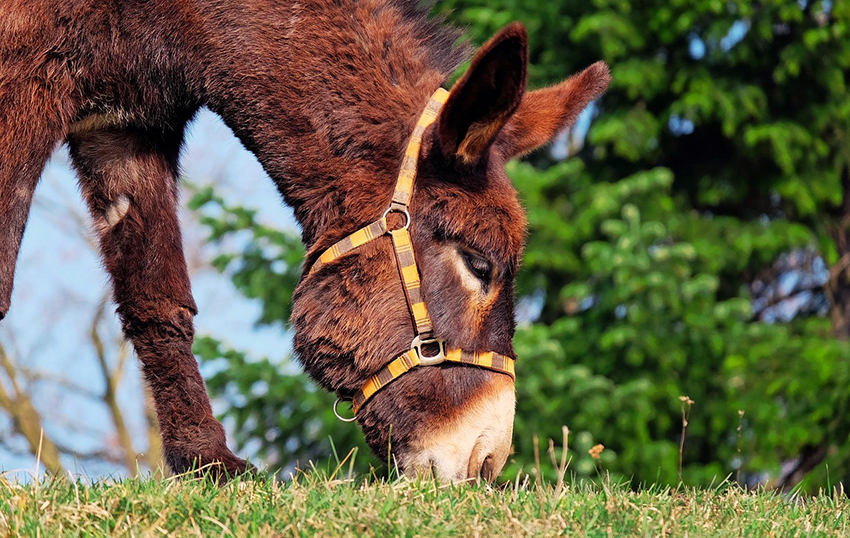What Side Are You Riding With?
by TERESA SCHIFFER
Mules versus horses, which is the better beast? There are folks on either side of the argument that can make a passionate case for each. Let’s take a look at some of the attributes of mules so you can decide where you land in this debate.
First, it needs to be established what a mule is. A mule is the sterile offspring of a male donkey and a female horse. A horse has 64 chromosomes and a donkey has 62, resulting in the mule having 63 chromosomes. In hybrid animals such as mules, the offspring generally has some accentuated traits of the parents. There are some physical differences between mules and their parents as well. In comparison to horses, mules typically have good withers, more body weight over their front, and a deep, but not overly wide, chest. Plus, they have tougher, thicker feet. Let’s take a look at some of the other pros and cons of mules over horses.
Pros
- -The toughness of their feet and legs makes mules excellent for trail riding. If you’ve been having trouble with horses that have leg and foot issues, it may be time to consider trying out a mule.
- -Mules tolerate warm climates better than horses, making them particularly well-suited to southern environments.
- -Mules can generally pull and carry greater loads (compared to their body weight) than horses.
- -Mules tend to be healthier and more disease resistant. This will result in fewer consultations with the vet, which can lower the cost of keeping mules. It also means fewer lost working days, if the animal is kept for labor.
- -Mules require less feed than horses and generally do well on a lower quality feed than what horses require. This will also lower the cost of keeping the animals.
- -On average, mules live longer than horses. It is common for mules to continue working into their thirties.
- -Mules may be stubborn, but they don’t tend to panic. Whereas a horse may become spooked and bolt off, a mule will remain calm. Horses will also sometimes react negatively to the actions of the other horses in the herd, while mules are less influenced by these social cues.
Cons
- -Mules are notorious for their stubbornness, but this behavior is actually a manifestation of their high intelligence. Mules are very safety-conscious, so a mule will evaluate its situation before committing to an action. If the mule is uncertain of its footing in a riding environment, for example, it may well refuse to go further. Good luck convincing that mule to go once it’s made up its mind!
- -Mules have a long memory and can be unforgiving. This can translate into sudden outbursts of defiant or rebellious behavior. While it’s impossible to say what is really going on in a mule’s mind, there are folks who believe that a mule’s sudden insubordination is due to a previous offense. We can’t definitively say that mules hold grudges, but they do seem to remember past treatment.
- -A good deal of practice with horses is recommended before trying to work with mules. Because of their intelligence and temperament, a mule is not a good choice for a first-time trainer. Training a mule requires a great deal of patience. A mule will not allow itself to be bullied into activity, it must be, in a way, convinced. If you give up on a mule before finishing a lesson, you may never make the progress you want.
Ultimately, whether you choose a mule or a horse is going to have a great deal to do with what your intended activity is, and some to do with your personal preference. Though mules can be slow to train and frustratingly stubborn, they are intelligent, dependable animals. Horses are aesthetically beautiful creatures, but there are plenty of people who adore mules for their long ears and stocky bodies.

